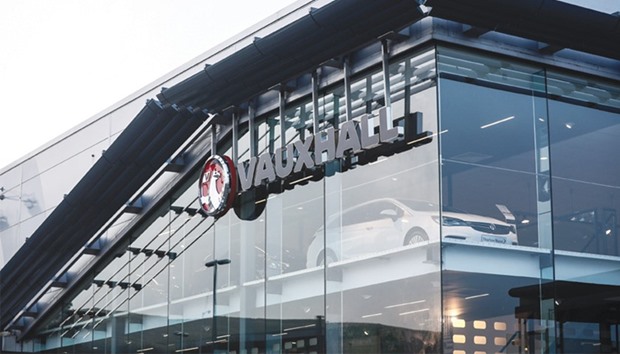European car sales fell the most in four years in April as the shift of Easter from March reduced buyers’ time for shopping, while registrations in the UK were further sapped by tax changes.
With at least two fewer selling days compared with a year ago, industrywide registrations dropped 6.8% to 1.23mn vehicles last month, according to the Brussels-based European Automobile Manufacturers’ Association, or ACEA. Regional leader Volkswagen and fifth-ranked Ford Motor Co lost market share to Fiat Chrysler Automobiles and Renault, which are attracting customers with sport utility vehicles.
Sales plunged 20% in the UK after a new vehicle excise duty went into effect on April 1. That could set the stage for further drops in demand amid the fallout from Britain’s preparations to exit the European Union, including a declining pound.
“Further weaker results are expected in the UK through this year, as the economy slows down, car-price rises feed through and the market eases back from a cyclically strong period,” Jonathon Poskitt, an analyst at LMC Automotive in Oxford, England, said in a report.
Car-sales growth is about to slow after three years of consecutive gains, as many consumers have already purchased new autos and buyers in the UK, Europe’s second-biggest market, begin to feel Brexit’s economic pinch. The Easter holiday’s move into April this year hurt the annual comparison because dealerships had less business.
The April drop was the first decline since October and was the steepest since a 10% plunge in March 2013, the year Europe’s auto market slid to a two-decade low. Demand since then has revived, reaching a nine-year high in 2016. Despite April’s poor performance, sales are set to increase again in 2017, albeit at a slower pace. Economic confidence in countries using the euro was the strongest in almost a decade in April, signalling more consumer spending in coming months.
“Overall conditions remain positive for the full year,” Peter Fuss, a partner at consulting firm EY, wrote yesterday in a report. “The European car market will benefit from good economic-growth prospects, declining unemployment and continuing low financing costs.”
Volkswagen’s group European sales fell 9%, narrowing the German company’s market share to 24.8% from 25.4% a year earlier, as demand at the namesake VW brand as well as the Audi and Porsche marques dropped by more than 10%. Ford’s registrations in the region slid 12%, while Opel and Vauxhall, the European nameplates that General Motors Co is selling to French competitor PSA Group, posted a 13% plunge.
Among the top 10 carmakers in Europe, only Toyota Motor Corp, which ranks ninth, posted a sales gain last month. Renault, which makes the Kadjar and Captur SUVs, widened its market share to 10.6% from 10.1% a year earlier, even with a 2.9% slide in demand. Fiat Chrysler accounted for 7.3% of the European market, versus 6.8% in the 2016 period, as a 52% surge at the Alfa Romeo brand following the rollout of its Stelvio SUV partly countered declines at the Fiat and Jeep nameplates.
Sales in Germany, Europe’s biggest market, dropped 8%, while declining 4.6% in Italy and 6% in France. The ACEA compiles numbers from the EU’s 28 member countries, excluding Malta, plus Switzerland, Norway and Iceland.
LMC predicts western European auto sales will rise 2.4% in 2017, compared with a 3.7% gain through the first four months of the year. Deliveries are unlikely to pass the 2007 peak anytime soon as Europeans increasingly opt for car-sharing and other alternatives to vehicle ownership.

A Vauxhall logo is seen on display at a showroom opposite the Vauxhall plant, operated by General Motors Co, in Luton, UK. Car sales plunged 20% in the UK after a new vehicle excise duty went into effect on April 1.
